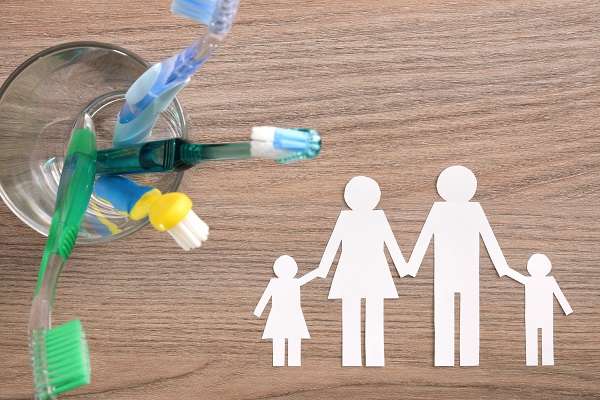A Family Dentist Discusses Ways to Reverse Tooth Decay

Looking for a new family dentist? Tooth decay refers to the erosion of dental enamel. When complete tooth decay occurs, the effects are irreversible, but weakened enamel can be restored and strengthened through treatment from a family dentist. If you have weakened enamel or tooth decay, then it is important to seek urgent treatment from a family dentist.
Tooth decay treatment from a family dentist
It is important to recognize the early signs of tooth decay to prevent the issue from worsening and requiring more invasive treatment. The following is a review of how a family dentist can reverse tooth decay in its early stages and how they may choose to treat concerns of moderate to severe tooth decay.
Tooth decay explained
Tooth decay — also called dental cavities, enamel decay, or enamel erosion — occurs when the minerals that make up tooth enamel on teeth break down. In the early stages of tooth decay, the symptoms include a change in the color of the tooth enamel. This could be a yellowish shade to teeth or, in some cases, weakened enamel may start to appear whiter. If the issue progresses, then symptoms such as small holes on teeth and black spots may develop. Patients often also experience bleeding gums and toothache in addition to tooth decay.
How to reverse tooth decay
In the early stages of tooth decay, meaning before the enamel actually erodes away from the tooth and small holes develop, tooth decay is reversible. There are certain treatments that strengthen weakened tooth enamel, which reverses the effects of tooth decay in the early stages. Most notably, dentists often prescribe fluoride treatment. Patients also are required to practice good oral hygiene by brushing, flossing, and using mouthwash while reversing the early effects of tooth decay.
Treatment options for severe tooth decay
If small holes develop on teeth as a result of moderate to severe tooth decay, then fluoride treatment cannot reverse the effects. Instead, the patient may require a dental filling, root canal, dental crown, or another type of restoration. These treatment options can restore the look, feel, function, and health of the damaged teeth in the long term. The family dentist will likely also prescribe a fluoride treatment to strengthen weakened enamel, along with educating the patient on good oral hygiene and appropriate dietary choices (see below).
Tips for tooth decay prevention
The best way to prevent tooth decay is through a consistent brushing and flossing schedule, appropriate use of mouthwash, limiting foods and drinks that are high in sugar, and other carbohydrates (i.e. candy, coffee, tea) and visiting the family dentist for regular visits. The family dentist can perform routine cleanings to remove plaque and tartar buildup on teeth, along with recommending appropriate fluoride treatment plans to keep enamel strong.
Contact our family dentist team to learn more
Contact our dental office today to learn how our family dentist team can treat the effects of tooth decay. We help our patients strengthen weakened enamel and promptly repair any dental cavities that develop.
Request an appointment here: https://www.angelafennell.com or call Angela S. Fennell DMD, PC at (256) 660-3089 for an appointment in our Huntsville office.
Check out what others are saying about our dental services on Yelp: Family Dentist in Huntsville, AL.
Related Posts
A family dentist can rebuild your smile. Dental damage and tooth loss can result from severe decay or trauma. Restoring the affected tooth is important for one’s dental and general health. Here are the details on how a family dentist can bring back your damaged or missing teeth.This field of dentistry concentrates on replacing or…
Most parents do not take their children to see a family dentist until they are well over two years of age. Dental professionals recommend that a child should visit the dentist within six months after teething starts. Baby teeth often start coming in from six months of age. Continue reading to learn more about children’s…
One of the concerns parents often have about their children is the need to get a dental x-ray at the family dentist. The worry stems from the safety of x-rays and radiation exposure. Some parents think x-rays are not required until the child has permanent teeth. Continue reading to know when to take your child…
Considering seeing a family dentist? These general dentists undergo training to learn how to care for patients of different ages, including children. Family dentists are great resources to utilize as they can provide oral health care for the entire family, thus making them convenient options for parents looking to get everything done at once. Additionally,…


